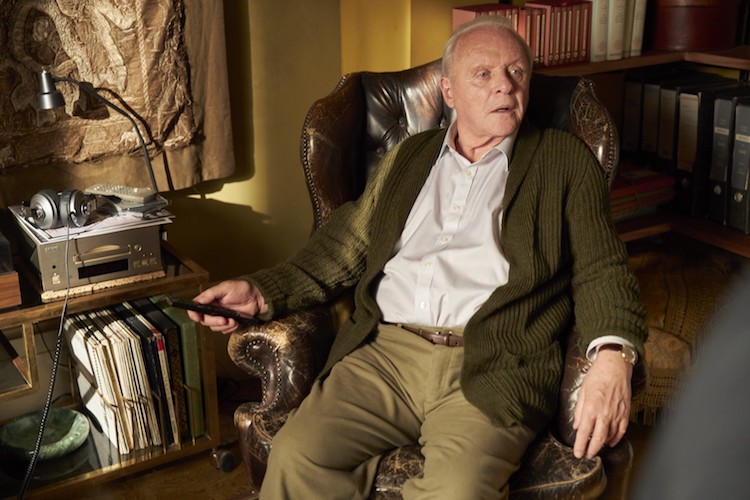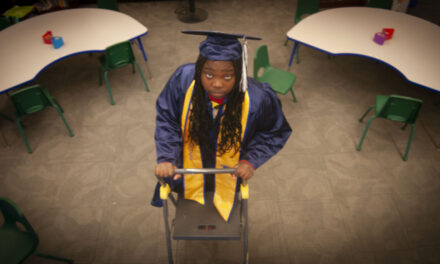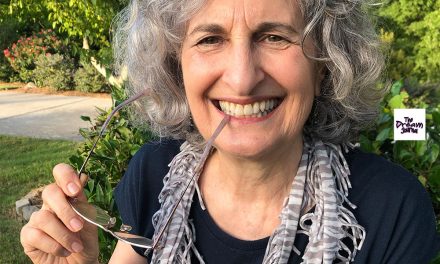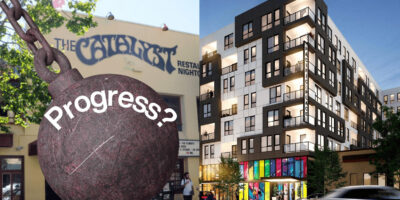
Mentioning Florian Zeller might not ring many bells in the U.S., but in his home country of France he’s a household name. Zeller published his first novel when he was only twenty-two years old. Now, at age forty-one, he’s an accomplished novelist, a highly acclaimed playwright, and, as of this year, an Oscar-winning filmmaker. He was awarded the coveted gold statue for adapting his own play, The Father, into a film of the same name, which he also directed. The Father is an intimate look at a man suffering from dementia that’s both harrowing and empathetic. What Zeller manages to pull of so effortlessly, and made all the more impressive considering this is his first feature film, is how The Father manages to simultaneously convey the subjective tribulations of the poor victim as well as the emotional toll on those around him.
The great Anthony Hopkins plays Anthony, an eighty-something-year-old man who’s constantly at war with his own cognition. At the start of the film we see his middle-aged daughter, Anne, played by Olivia Coleman, approaching his London flat. Ominous music builds to a crescendo giving the sense of impending doom, or perhaps Anne’s fear of what she’ll find when she arrives. Anthony has been living by himself as of late, having driven away his caretaker with false accusations of thievery. Anne has arrived to pave the way for a new one. Anthony insists he doesn’t need a caretaker. He softens, however, when he sees the replacement is an attractive young woman named Laura.
Soon after the character of Laura introduced, she’s gone. Just as suddenly, a stranger appears to have made himself at home in Anthony’s flat. The stranger tries to calm the startled senior, explaining he’s Anne’s husband, and it’s their flat they’re living together in, not Anthony’s. The bulk of the narrative is a series of equally uncomfortable encounters – some embarrassing, some frightening, each more disorientating than the last. Anthony sublimates his confusion by obsessing on the time of day and getting paranoid when he can’t find his watch, even though it’s always waiting for him right where he left it.
Anthony’s fate is quite literally a foregone conclusion; we know where the story is heading, we just don’t know how it’s going to get there. But it’s the journey that’s so memorable. Hopkins, in what some have describe as a career-high performance, tackles his role with a ferocity that hints at the lion of a man Anthony must have been before falling ill. He’s by turns charming, impish, rambunctious, intimidating, vulnerable, and befuddled. Olivia Coleman is equally stellar. So palpable is her heartbreak, her tears become our own.
Inspired sound and set design augment their performances. Apropos of a once brilliant mind succumbing to Alzheimer’s, the judicious use of opera suggests a tragedy of Shakespearean magnitude. Anthony’s frustration is occasionally emphasized with an unnerving high-pitched sound, as if his struggling neurons are creating mental tinnitus. As Anthony’s surroundings subtly change in appearance, and his perception of Anne’s relationship status becomes chronologically unhinged, time and place begin to lose all meaning. His remembered past becomes a nest of ever-diminishing Russian dolls. Even the identities of those closest to him begin to blur. At times, The Father feels like a horror story. That’s because, in its own disquieting way, it is.
For KSQD’s Film Gang, this is Paul Kanieski.












